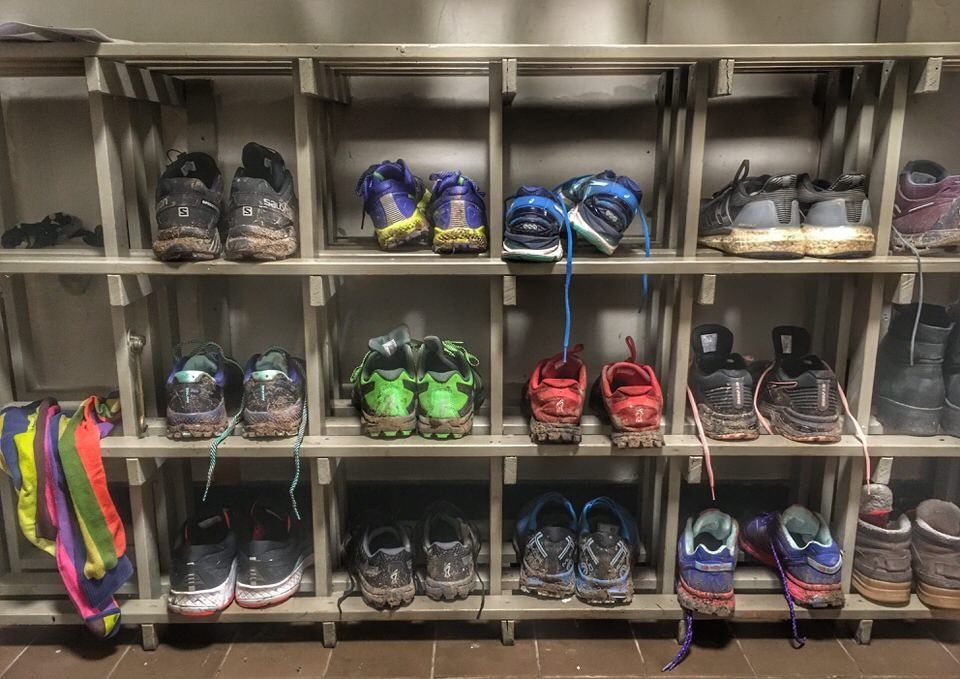Nutrition for Ultra Running
Fuelling before and during the race to help you perform at your best.

Ultra running is not just about stamina and willpower; it’s about looking after yourself and getting the proper nutrition to keep you functioning. Unlike traditional marathons or shorter races, ultras demand sustained energy over an extended period, lasting many hours or even days. How you fuel your body before and during an ultra can be the difference between crossing the finish line or hitting the dreaded “wall.”
In this blog, we will dive into the essentials of ultra running nutrition, covering strategies for pre-race fuelling and in-race nutrition that will keep you energised and help you perform at your best.
Before the Ultra: Building a Solid Foundation
Lets go right back to basics, for our bodies to function we need to consume three important macro nutrients; Carbohydrates (45-65% of calorie intake), protein (10-35% of calorie intake) and fats (20-30% of calorie intake). Macronutrients are what your body runs on, carbohydrates gives your body energy, protein helps rebuild and repair your bodies tissues, such as muscles while fats are important hormone balance ad helping your body absorb micro nutrients such as some vitamins. Whole foods are always best, they are rich in a variety of nutrients that are often stripped away in processed options. They not only provide all the essential macronutrients but also deliver essential micronutrients (vitamins and minerals) that support overall health and help your body function optimally.
Nutrition before an ultra is all about laying the groundwork for long-lasting energy. The weeks and days leading up to the race are crucial for optimising your body’s stores of glycogen, fat, and electrolytes, all of which will power you during the race.
Carb-loading: The Key to Glycogen Storage
Carbohydrates are the primary fuel source for endurance athletes. During an ultra, your body taps into glycogen, the stored form of carbohydrates, to fuel muscles. A well-executed carbohydrate-loading strategy helps increase your glycogen stores, allowing you to run longer before depleting your energy reserves.
Begin carb-loading about 3–4 days before your race. In the final 2–3 days, this doesn’t mean you need to eat more just increase your carbohydrate intake to about 70-80% of your total daily calories. Focus on easily digestible foods like pasta, rice, bread, oats, potatoes, and fruits. Avoid heavy, greasy foods or anything that might upset your stomach.
Its really important to avoid overloading on carbs or over eating the night before the race, you don’t need another bowl of pasta, it will just make you feel uncomfortable and as such it will affect your sleep. The focus should be on consistent fuelling for several days prior to the event, not the night before.
Hydration is Essential
Dehydration is a common problem in ultra running, and it can be a race-ender if not managed properly. Hydrating properly in the days before the race ensures that you start with optimal fluid balance, making it easier to maintain hydration throughout the race.
Drink water consistently in the days leading up to the race. Include electrolyte-rich drinks (sports drinks, adding electrolytes to your water or coconut water) to ensure you’re getting sodium, potassium, and other key electrolytes that your body loses through sweat.
Much like eating before the race avoid over hydration, drink according to thirst and aim for clear, pale urine prior to the race that indicates good hydration.
Pre-Race Meal: A Balanced Approach
The meal before your ultra should be high in carbs, moderate in protein, low in fat and fibre, it should be the meal that you eat before your long training runs too, like your clothes, your footwear, your race pack, don’t change anything on race day. The goal is to top up your glycogen stores without causing any digestive discomfort. Eat 3–4 hours before the race begins. This allows your body time to digest the food and avoid any stomach issues. A bowl of oatmeal with bananas and honey, or a bagel with peanut butter and a side of fruit is ideal.
During the Ultra: Staying Fuelled and Energised
During an ultra, your body goes through a complex interplay of energy systems. In addition to carbohydrates, your body will start to rely on fat stores for fuel. The key is to maintain a steady supply of energy and avoid drastic drops in blood sugar or electrolyte imbalances.
Eat, little and often, it’s tempting to wait until you feel hungry to start eating, but waiting too long to refuel is too late, can lead to energy crashes and even muscle fatigue. Eating small amounts regularly—every 30-45 minutes—helps maintain blood sugar levels and keeps you from "bonking" or feeling sluggish.
What to eat
Stick with simple, familiar foods and avoid complex meals that may be harder to digest while on the move.
Carbohydrates: Aim for quick-digesting carbohydrates like gels, chews, or carbohydrate drinks, as well as real foods like bananas, potatoes, rice balls and energy bars. These provide the quick burst of energy your muscles need.
Protein: Relying too much on gels or processed foods may give you a quick energy boost, but it doesn't provide the sustained and varied sources of energy your body needs for the long haul. After 4-5 hours of running, incorporating a small amount of protein (like nut butter or protein bars) to help with muscle recovery and prevent muscle breakdown.
Fat: Although fats provide sustained energy, they take longer to digest. Consider small portions of nuts, seeds, or a nut butter packet, but don’t overdo it, as fat can sit heavy in your stomach.
Stay Hydrated and Balance Electrolytes
In ultra running, you lose a lot of fluids and electrolytes through sweat. If you don’t replenish these properly, you risk dehydration, cramping, and a decrease in performance. Like eating, if you are thirsty its all ready too late.
Drink regularly sipping small amounts of liquids throughout the race is key to staying hydrated without overwhelming your stomach. Too much water can cause bloating, while too little can lead to dehydration. Aim for balanced hydration.
Use electrolyte drinks or electrolyte tablets to replace sodium, potassium, and magnesium lost in sweat. You may need to increase your sodium intake, especially in hot or humid conditions.
Pay attention to your body’s signals. If you start feeling lightheaded, sluggish, or crampy, it’s a sign that your electrolytes may be out of balance, and you need to adjust your intake.
Manage GI Distress
Gastrointestinal (GI) distress is one of the most common issues faced by ultra runners. To avoid stomach problems, it’s important to:
Caffeine: Use Wisely
Caffeine can be a valuable tool for staying alert and boosting performance, but it should be used strategically. Consuming too much caffeine early on can lead to crashes, dehydration, and stomach issues. Use caffeine strategically for a mental boost during the later stages of the race (e.g., after 6 hours) when fatigue starts to set in. Energy gels or drinks with caffeine, or even coffee or cola at aid stations, can provide a welcome boost without overloading your system.
Conclusion: Nutrition is Your Secret Weapon
Ultra running is a test of physical and mental endurance, but with the right nutrition, you can power through the toughest conditions. Proper fueling before and during the race will help you avoid hitting the wall, prevent fatigue, and enhance recovery. By carefully managing your carbohydrate intake, electrolytes, hydration, and food choices, you set yourself up for success. Try different foods and fuelling strategies to see what works best for your body before race day. Your stomach can tolerate certain foods during training that it won’t tolerate during an ultra, so trial and error is essential.
What works for one runner may not work for another. The key is to experiment with different strategies in training so you can find what works best for you. The miles will be hard, but with the right fuel, you can keep moving forward one step at a time.
It can be money well spent to seek professional input into your running where everything talked about in this blog can be covered in detail offering personal tips and techniques to improve your race performance. Adventure Awaits offers technical running coaching, recces of race courses and the Paddy Buckley and training events such as the Welsh 3000's to help runners to realise their goals.










